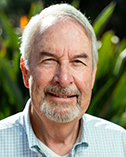
Richard L. Church
University of California, Santa Barbara
|
Primary Section: 64, Human Environmental Sciences Membership Type:
Member
(elected 2022)
|
Biosketch
Richard Church is Distinguished Professor Emeritus at the University of California, Santa Barbara. Prior to coming to UCSB, he was an associate professor of Civil and Environmental Engineering at the University of Tennessee, Knoxville. He has taught courses in Industrial Engineering, Management Science, Civil Engineering, and Geography. He received his B.S. degree in both Mathematics and Chemistry from Lewis and Clark College and his PhD in Environmental Systems Engineering from The Johns Hopkins University. He is a Fellow of the Regional Science Association International, a Fellow of the American Association for the Advancement of Science, a recipient of the Walter Isard Award for Scholarly Achievements in the field of Regional Science, the William Alonso Memorial Prize for Innovative Work in Regional Science, and the Lifetime Achievement Award in Location Analysis from the Section on Location Analysis of INFORMS (Institute for Operations Research and the Management Sciences). He has published more than 280 papers along with two books. Professor Church has served as a consultant to a number of companies and governmental agencies on a wide variety of problems (logistics, environmental management, site selection, transportation). He has also served on a number of journal editorial boards.
Research Interests
As a geographer my principal research focus centers on the development and application of spatial optimization models. The emphasis is on the optimal configuration, design, and operation of systems defined over space and time and has included applications of logistics and transportation including urban transportation, water resource systems planning, energy planning, urban and environmental systems, and biological conservation. I have also specialized in studying critical infrastructure and the fragility of critical supply systems, forest planning in order to produce fire resilient landscapes, emergency response and evacuation, optimal resource allocation, and location theory. To support this research my work has involved the development of new models and specialized solution approaches in Operations Research (both optimal and heuristic), new methods to efficiently characterize spatial data, and the integration of modeling techniques within the framework of Geographical Information Systems.

